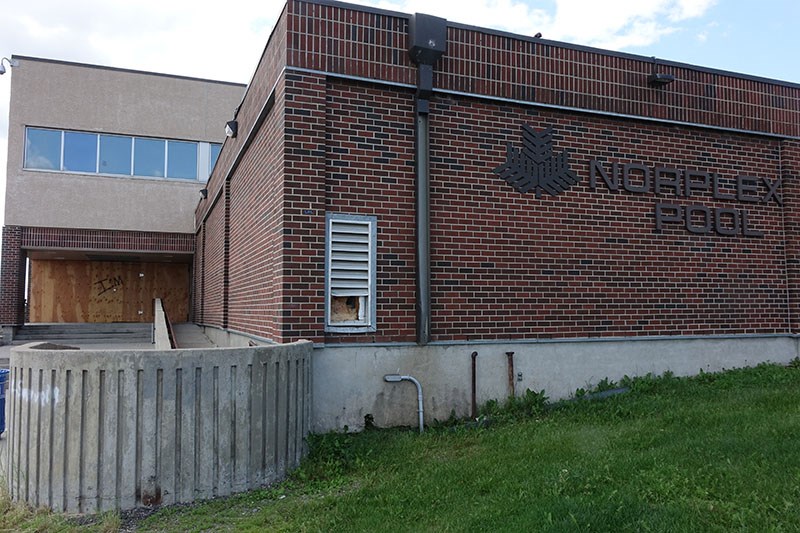An ounce of prevention is worth a pound of cure, as an old saying goes. And nowhere is this more evident than in the untimely ends tha have now befallen two recreational facilities in two of Northern Manitoba’s three major communities.
On Feb. 14, Flin Flon’s mayor and council announced that they were immediately shutting down the town’s aquatic centre due to structural problems with the building that make it unsafe for further use. This decision came one year and one day after Thompson’s mayor and council made the same decision regarding the Norplex Pool in 2019.
In both cases, it is unlikely that the problems that forced the permanent shutdowns developed overnight. They are almost certainly longstanding issues that were not addressed through annual maintenance and worsened over time until the current governments of the two municipalities inherited the consequences and were forced to make the difficult decision to deprive their respective communities, both of which are going through other trials and tribulations, mostly economic, of important indoor recreational facilities. Their decisions are a blow to the people who were employed there, to the children who learned to swim there, to people who stay in shape and relieve their stress through swimming, and to the youth in the communities who no longer have swimming clubs as options to which to devote their free time.
Make no mistake. The decisions by Thompson and now Flin Flon to shut down their pools are the right ones. Not having a pool is a hardship for residents, to be sure, but the consequences of a catastrophic collapse of either of these buildings could be permanent and far more devastating.
The question in both of these cases is how were the pools allowed to deteriorate to the point at which merely occupying the buildings they are in became potentially hazardous? The likely answer is that municipal governments are stretched very thin, responsible for infrastructure including roads and sidewalks, water and sewer lines and facilities such as pools and arenas, along with water utility operation and garbage collection, firefighting services and policing costs. Apart from grants, many of which are doled out on a per capita basis, and sale of goods and services, their main option for raising money is property taxation. As local economies and populations remain stagnant or shrink, municipalities’ ability to raise money does too, and fewer people are required to foot the costs of facilities nd services, some of which, such as swimming pools, do not vary a great deal regardless of how many people are actually using them, though of course greater usage means more fees are collected to offset the costs of operation.
When it comes to making budgets, municipal governments have wish lists that are much longer than the list of things they can actually afford to do, with a substantial majority of their budgets already spoken for in the form of wages and repayments for previous borrowing before councillors even start to make decisions. When faced with such a dilemma, the only answers are to raise property taxes, which is always unpopular, to raise fees for various services and permits, which is also generally unpopular, or to forgo potential spending that isn’t necessary right now.But as every home or vehicle owner knows, opting not to spend a smaller amount on maintenance now often results in a much larger bill for a necessary repair in the future. Obviously, past councils and mayors in both Thompson and Flin Flon chose not to invest in keeping their pools in the best running condition they could be, and those decisions have come back to bite the current municipal leaders.
Is there a solution to this kind of problem, other than requiring shrinking tax bases to pay more for the same services and facilities they were already receiving? There could be, if provincial and federal governments were willing to provide infrastructure and maintenance funding on a consistent and ongoing basis for places like Thompson and Flin Flon, which serve not only their own populations but also act as regional hubs.
Being a regional destination is a double-edged sword. On the one hand, it brings visitors who spend money at local businesses to the city. On the other, it can also bring higher costs, mostly in the form of policing in Thompson’s case.
The shutdown of pools in Flin Flon and Thompson doesn’t only deprive those communities’ residents of a recreational facility. It also affects people who come here from smaller communities that down’t have pools of their own, who no longer have the option of going for a swim while visiting.
Preventing such incidents from occurring in the future will be difficult. But it certainly seems that it might have been cheaper than the $19 million that is the estimated cost building a new pool in Thompson to ensure that the Norplex Pool remained safe to use through better past maintenance and inspections. Undoubtedly, the costs would have been more manageable as a percentage of the city’s annual budget, whereas replacing the pool will require an expenditure equal to more than half of Thompson’s annual operating budget. The same is likely true for Flin Flon.




